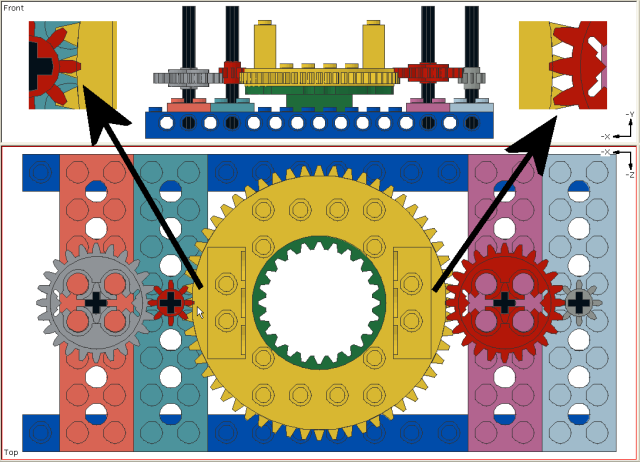Turntable 2855 accuracy
2014-07-09, 16:29 (This post was last modified: 2014-07-10, 22:39 by Travis Cobbs.)
2014-07-09, 16:29 (This post was last modified: 2014-07-10, 22:39 by Travis Cobbs.)
Is the 2855 "Technic Turntable Type 1 Top" known to be inaccurate at all?
I originally abandoned my attempt to position a gear to drive this turntable because it looked like what I was attempting was illegal, but now I think my desired position is fine and it's just an inaccurately defined 2855 part.
The enclosed MLCad screenshot shows the simplest example of the problem. All parts are correctly stud-aligned. But I've raised the red gears to highlight the problem. As you can see, the red gears actually cut into the body of the yellow turntable. I've included close-ups of how much the overlap occurs. I also added the grey gears just to show that no such problem exists between the grey and red gears. The problem is only with the turntable.
Can I safely assume that 8 and 24 tooth gears *can* be positioned as shown?

I originally abandoned my attempt to position a gear to drive this turntable because it looked like what I was attempting was illegal, but now I think my desired position is fine and it's just an inaccurately defined 2855 part.
The enclosed MLCad screenshot shows the simplest example of the problem. All parts are correctly stud-aligned. But I've raised the red gears to highlight the problem. As you can see, the red gears actually cut into the body of the yellow turntable. I've included close-ups of how much the overlap occurs. I also added the grey gears just to show that no such problem exists between the grey and red gears. The problem is only with the turntable.
Can I safely assume that 8 and 24 tooth gears *can* be positioned as shown?




